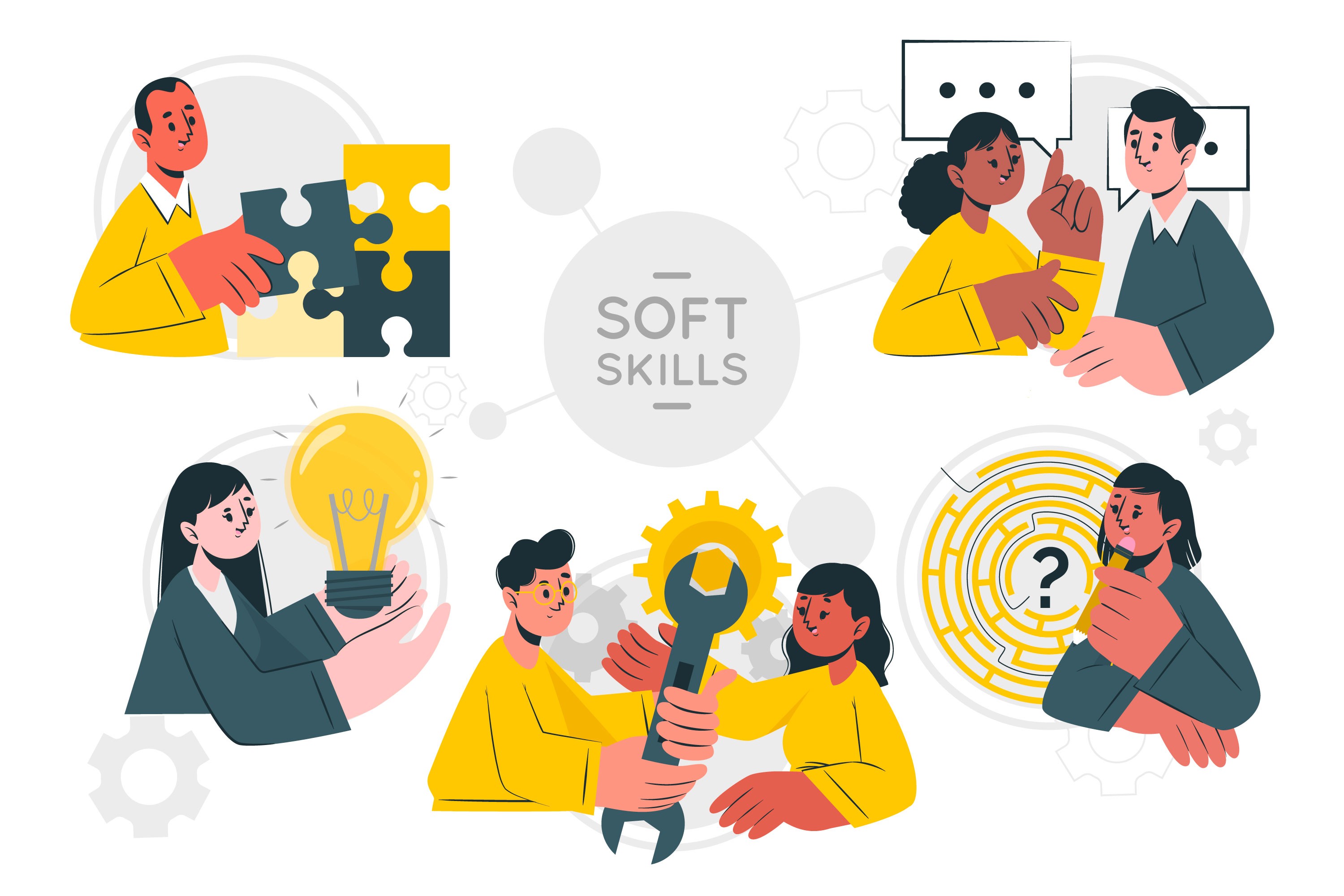
Soft skills are crucial for Learning and Development
[updated 30 Mar 2024]
Businesses and professions are evolving at a rate never seen before. Many educated youth who are unemployed are the outcome of this. Learning & Development (L&D) managers find it difficult to create and implement development programs that can reskill workers at such a rapid pace, even for current staff members. According to a 2019 L&D survey, companies with highly engaged workers are more than twice as likely to place a high priority on soft skills training. It should come as no surprise that the value of soft skills has been the one constant across numerous L&D studies carried out since the 1990s.
Future human employment will be those that require soft talents and the human touch as the industry becomes more and more automated. Customer service is becoming more and more important, and effective and professional communication skills will be even more in demand. Jobs are requiring more and more in the way of creativity, teamwork, and relationship building. This is also evident in the feedback we receive from our clients: what companies need is not so much academic credentials as it is the capacity for creativity under duress.
Talent Chain
Only 6% of organizations believe their leadership pipeline is ready, according to a recent Bersin research, while 86% of businesses worldwide list "gaps in their leadership pipeline" as one of their top three concerns. Our work with corporate organizations shows that many people become stuck in middle management because they lack soft skills, which prevents them from taking on leadership and strategic positions, rather than because they lack technical competencies. 21st-century abilities, sometimes known as soft skills, enhance one's capacity for swift data interpretation, situational analysis, and decision-making. These are the skills that future leaders will need. They must not just possess information but also collaborate, communicate, cooperate, and—most importantly—inspire others!
An excellent learner and a standout employee don't appear all that different
A quality soft skills training program should not only focus on teaching information and skills but also on helping participants develop their capacity for self-reflection and self-learning. Does that sound familiar? That is precisely the kind of skill that companies should be cultivating in all of their workers, which is why our training approach works so well.
Handling the Ten Percent
Does your company's L&D adhere to the ideal 70:20:10 ratio? Don't forget to provide soft skills enough of your planning when you allocate the 10%. Soft skills that are necessary for every L&D plan are as follows:
- Diversity and inclusion: Your organization's value proposition can benefit from intercultural fluency by incorporating competencies like avoiding unconscious bias and operating productively in a diverse workplace. In the age of social movements like #metoo, providing your staff with this kind of training not only fosters a positive work environment but also sends a powerful statement about organizational principles. It can also help prevent PR and HR calamities.
- Interpersonal communication: Effective communication is a prerequisite for an effective organization. Several research on teams that interact with customers have revealed that high achievers speak English more fluently than the others on the team. Our experience also shows that CSAT scores are directly impacted by English language instruction.
- Productivity and performance: Give your staff the knowledge and abilities need to function in high-performing groups. They can be trained to conduct successful meetings, create lasting partnerships for your company, and efficiently manage their own time.
- Customer service: Ensure that your staff members can relate to and satisfy your clients, and that your customer service actually enhances the value proposition of your business.
- Leadership communication: Your current and future leaders' capacity to motivate their colleagues and clients will determine how well they perform in a demanding and evolving environment. Instruct them in executive presence creation, coaching, and mentoring, as well as the craft of strategic corporate storytelling.
Training programs for soft skills and communication abilities are urgently needed, and for maximum impact, they must be cutting-edge, efficient, scalable, and digitally enabled. All organizations, including governmental agencies, well-known businesses in the private sector, and international educational institutions, require this training.
Trending Blog Posts
-
Why Choose Online Clinical Research Courses for Your Career?
Last updated: 22 Apr 2024
-
How to Build a Strong Portfolio for Your Medical Writing Career?
Last updated: 06 May 2024
Links
- Home
- About
- Grievance Redressal
- Contact Us
- Webinar
- Blogs
- Press Release
- Webinars Archive
- Privacy Policy
- Terms & Conditions
2021 © GAADS. All Rights Reserved. Designed & Developed by || Bonwic Technologies Pvt. Ltd.